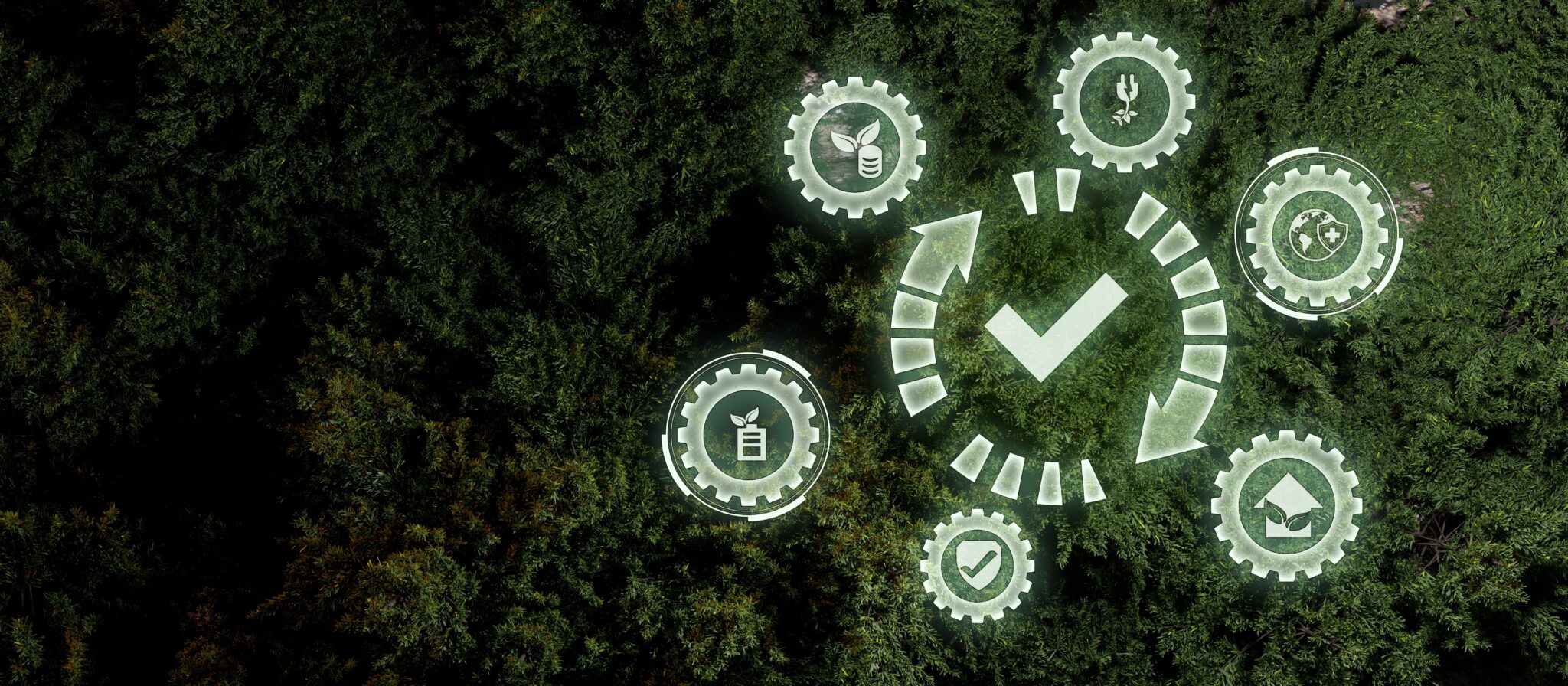The importance of an ethical supply chain
Maintaining an ethical supply chain is much more than just doing the right thing. Ethical sourcing offers businesses a key strategic advantage. Making ethical supply chains a key business focus can significantly improve a brand’s reputation, boost customer loyalty and attract new talent. But what exactly is an ethical supply chain, why should your business prioritise it and how can you screen potential suppliers for sustainable practices?
Commitment to sustainability and ethical practices
Gerald Edelman has recently committed to sustainability and ethical practices by becoming one of the UK’s 2,000 verified B Corps. B (for beneficial) Corporations are recognised by B Lab for their social and environmental performance, transparency and accountability. This certification recognises Gerald Edelman as a socially responsible brand. To uphold our standards we have made a decision to align with sustainable partners like Commercial Foundation, a B Corp printing firm that provides employment opportunities to young adults.
As a social value enterprise, Commercial Foundation has always taken a proactive approach to sustainability and reducing its impact on the environment. The team naturally made buying decisions based on environment, societal and ethical quality of the supply chain anyway, so having the endorsement of B Lab and partnering with like-minded organisations was a logical step for them.
What is an ethical supply chain?
Ethical supply chains guarantee that the entire process meets ethical standards, from sourcing the raw materials to delivering the finished products. Partnering with other ethically minded businesses ensures that products and services within the supply chain either positively or neutrally impact the environment, human rights, labour practices and resources. Ethical supply chains should prioritise accountability, transparency and fairness across all work areas.
At Gerald Edelman, we know that transforming our supply chain into an ethical one is an ongoing process. It’s not about achieving everything all at once but rather taking thoughtful steps, from considering who is in our current supply chain, we have made a decision to evaluate our key suppliers for ethical practices (those we spend over £20k with). The aim being to extend our process out to all suppliers in the next three years.
Benefits of ethical sourcing
While there is an important moral aspect to ethical supply chains, it also has many significant business benefits. For example:
Brand reputation
Investors, consumers and employees are increasingly interested in companies’ ethical standards, with 88% of consumers concerned about the impact of a business’s partners. While this helps build loyalty and trust, it can also increase sales, market share and long-term growth.
Cost savings
There’s a common misconception that working with ethical partners will automatically increase costs. For example, when Commercial Foundation switched to branded cardboard boxes and paper tape, it actually reduced the cost per item. The idea that being ethical has to be more expensive is a myth. With thoughtful planning, savvy decision-making, and active engagement with your supply chain, you can achieve ethical outcomes without incurring additional costs.
Contract tendering
Those firms that follow ethical and environmentally friendly practices are more likely to secure lucrative contracts. This is especially true for government organisations, which typically require a minimum weighting of 20% for sustainability and 10% for social value. This approach is also being increasingly seen in the private sector too.
Retaining and attracting talent
More people in the workforce than ever before are prioritising working for businesses that make a positive impact. Businesses with ethical supply chains attract the best and brightest talent who are eager to contribute to a positive corporate culture.
Screening suppliers
Choosing potential suppliers that promote ethical practices is essential for any business to build ethical supply chains. However, studies have shown that 40% of green business claims are unsubstantiated, while 53% are vague or misleading. It therefore comes as no surprise that 70% of UK consumers don’t believe most environmental claims made by businesses.
Recognising that a potential supplier is ethical is a challenging task, so here are some tips to help you screen companies:
- Analyse the company’s history, reputation, past practices and partners
- Review their policies, practices and relevant certifications
- Check that the supplier has been audited by an accredited external body
- Make sure that any suppliers that heavily market their green credentials can provide substantial evidence to back up their claims
- Assess the supplier’s use of sustainable materials, waste management practices and environmental footprint
- Evaluate the company’s commitment to fair labour practices and community engagement
- Partner with EvoVadis, who scores firms on their ethical and sustainability practices
- Refer to Gerald Edelman’s due diligence form to assess suppliers’ ESG practices, which is then internally verified
Positive collaborations
Partnering with other ethically minded businesses or B Corporations increases the positive impact you make. For example, Gerald Edelman’s partnership with Commercial Foundation strengthens both organisations’ sustainability initiatives and drives positive change across the supply chain.
How Commercial Foundation navigate ethical challenges in the printing industry
In today’s digital era, the printing industry faces unique ethical challenges, especially in terms of waste management and sourcing sustainable materials. It must adapt to stay relevant and sustainable by expanding its offerings and incorporating eco-friendly practices. As a printing business, Commercial Foundation demonstrates that innovation and collaboration can help overcome these challenges by:
- Using PEFC or FSC-certified paper and other sustainable materials
- Streamlining production processes to reduce waste and energy consumption
- Making sure suppliers follow ethical practices and continuously seek improvements
- Choosing FSC-certified paper from responsibly managed forests
- Minimising waste by using efficient production processes and recycling
- Reducing energy consumption by utilising energy-efficient technologies
Your supply chain may only be a small part of your business operations, but it can make a huge difference to your business’s success and its impact in the wider world. Businesses like Gerald Edelman and Commercial Foundation are paving the way, but real change requires collaboration. By working together, B Corps and ethical businesses can create a more sustainable and equitable future for all.




